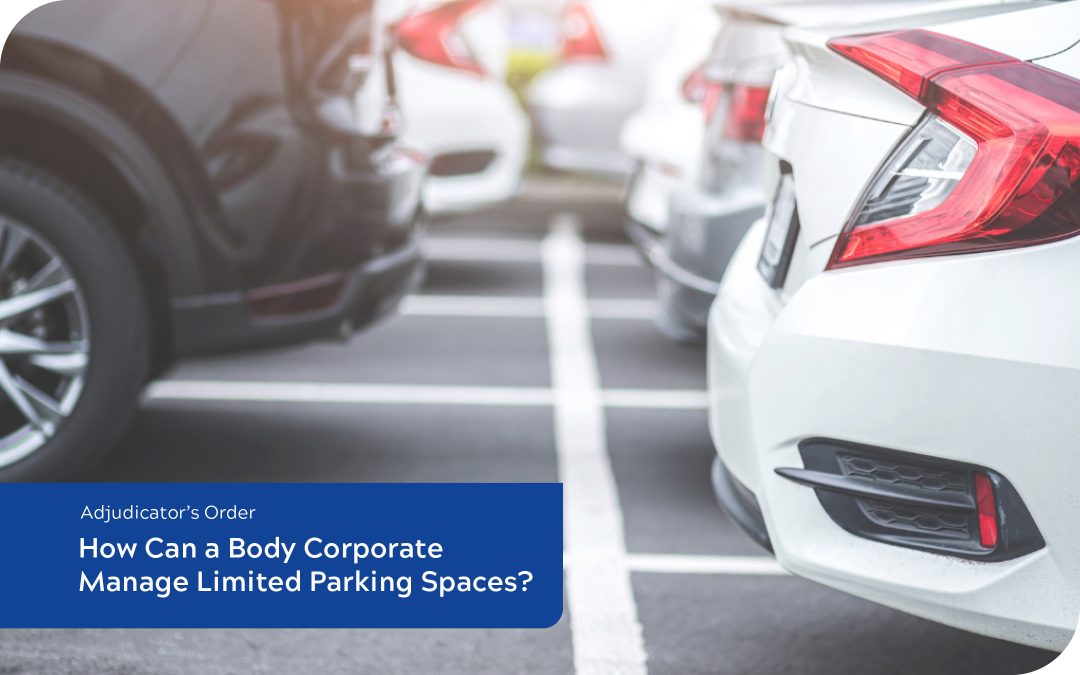Many schemes only have a limited number of visitor parking spaces, and often the minimum number of required visitor car parks are stipulated in a Body Corporate’s Development Approval.
So, what can a Body Corporate do to manage the visitor parking when a resident claims a visitor car park for their own use?
Firstly – it is important to ensure that your scheme has appropriate By-Laws in place in relation to parking and the use of Common Property.
Secondly – it is incumbent upon the Committee to “act reasonably” in enforcing the By-Laws.
That said – from time to time it may be necessary for a Committee to take further action to address breaches where they are not able to resolve these with the occupant in question through correspondence or mediation.
In the case of London Court Complex [2023] QBCCMCmr 208 (30 May 2023) the adjudicator was asked to make a ruling where an occupant was continually parking a jetski, caravan, utility and motorbike on the common property and storing other various personal items on the Common Property. Importantly the respondent occupant participated in the original conciliation conference (by which the matter was not resolved) and later declined to file any material to dispute the body corporate’s application. Accordingly the body corporate’s evidence was accepted.
The adjudicator noted in this instance that:
“In the circumstances, I consider it appropriate to require the respondent to remove his vehicles from common property. The respondent has a garage as part of his lot and an exclusive use area. If those areas are not sufficient to accommodate his vehicles and other possessions, he will need to find alternative arrangements for them off scheme land.”; and
“Having regard to By-law 3 and 7, owners and occupiers are not entitled to leave their possessions on common property. To do so impedes the use and enjoyment of the common areas by others. If an occupier cannot accommodate their personal possessions within their lot, garage, or exclusive use area, they will need to take them off scheme land.”
The adjudicator further went on to rule that:
“If the respondent does not remove his vehicles, rubbish, or other items from common property within 7 days of the date of this order, I will order that the body corporate is empowered to remove those items and recover the reasonable cost from the applicant as a debt. Similarly, if the respondent does not repair the fence within 45 days, I will empower the body corporate to repair it and recover the cost from the respondent.
Click here to view case http://classic.austlii.edu.au/au/cases/qld/QBCCMCmr/2023/208.html
